Explosion resulting in damage to fishing vessel Galwad-Y-Mor
Published 21 December 2020
1. Summary
Preliminary assessment of the explosion resulting in damage and abandonment of the potting fishing vessel Galwad-Y-Mor (BRD116), 22 nautical miles north of Cromer, Norfolk on 15 December 2020.
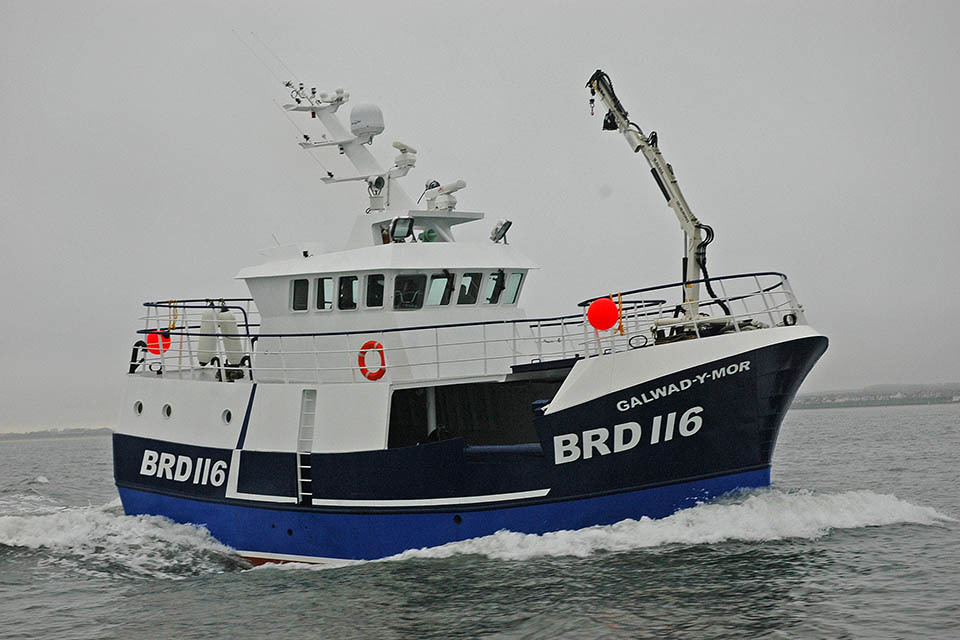
Fishing vessel Galwad-Y-Mor before the accident
The information contained in this preliminary assessment is based on investigations to date. Readers are cautioned that new evidence may become available that might alter the circumstances as depicted in this statement, and the MAIB’s final report of this accident.
2. Narrative
On 15 December 2020, Galwad-Y-Mor was operating in potting fishing grounds east of the Wash (Figure 1). At about 1120, the crew was in the process of hauling in a string of crab pots; the skipper was in the wheelhouse with other crew members below decks working the pots. The hauler was being used to heave in the back rope, and the crew had let the skipper know that there was a lot of tension on the line, when there was an unexpected explosion.
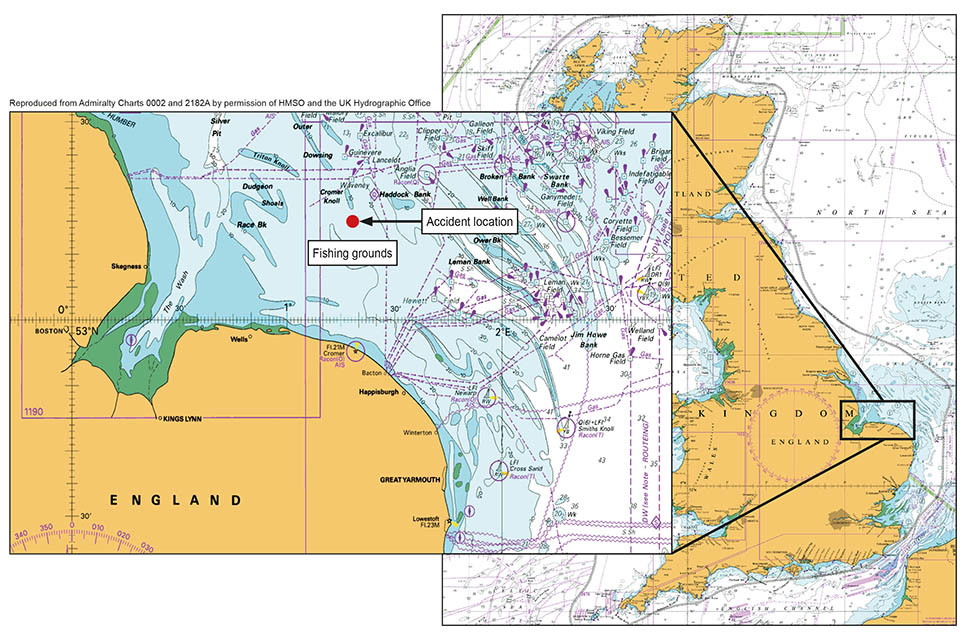
Figure 1: Charts showing the fishing grounds and accident location (Charts: HMSO and the UK Hydrographic Office)
Note: higher resolution image of the charts can be viewed on page 2 of the print PDF, 3466KB.
Galwad-Y-Mor was thrown up from the sea surface, then landed heavily back down; all propulsion and electrical power was immediately lost. The skipper was injured and dazed, but conscious, and saw that the wheelhouse had been completely wrecked. As he became aware that other crew members had been badly injured and that the engine room was flooding, the skipper ordered the crew to abandon ship. He also raised the alarm by texting the skipper of a sister vessel and activating the electronic position indicating radio beacon.
Although the liferaft had been manually activated, all crew members were initially rescued by the offshore support vessel, Esvagt Njord, then transferred ashore to hospital by helicopter and lifeboat. The abandoned Galwad-Y-Mor, which had settled low in the water (Figure 2), was towed to Grimsby by the tug, GPS Avenger, then lifted out of the water.
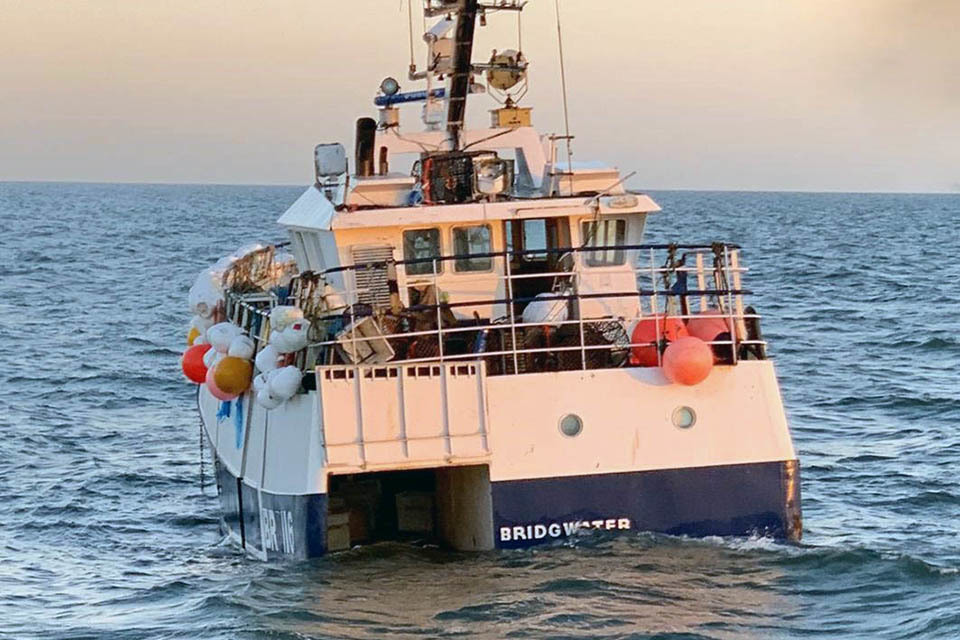
Figure 2: Galwad-Y-Mor, low in the water, after the abandonment
3. Vessel and crew
Galwad-Y-Mor was a 12.9m registered length, potting fishing vessel built in 2007. It was powered by a 268kW main engine driving a single, fixed-pitch propeller; deck machinery included a crane and hauler for handling pots. There were seven crew on board, two UK nationals and five Latvians. All crew members suffered injuries, some life-changing, during the explosion.
4. Investigation
MAIB inspectors attended Galwad-Y-Mor once it had been lifted ashore in Grimsby. A summary of the key areas of damage was:
- extensive shell plating indentation between frames (Figure 3)
- shell plating ruptures and shearing of a seawater suction
- main engine displaced from bedplate
- widespread and significant levels of destruction of the wheelhouse (Figure 4) and other internal compartments
- buckling of internal bulkheads and warping of decks
- widespread damage to upper deck fittings.
There was no evidence of an internal explosion.
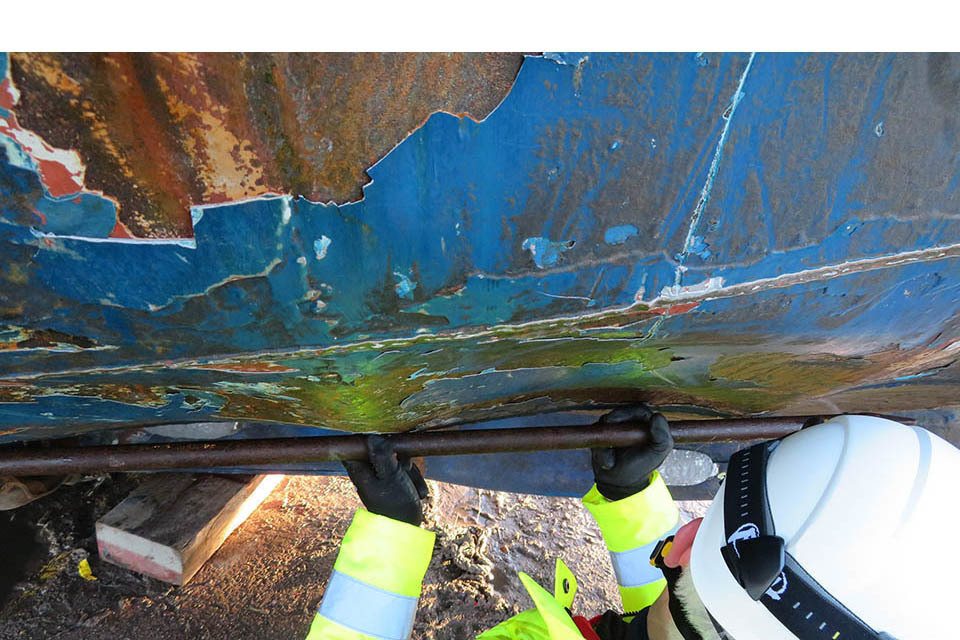
Figure 3: Detail of shell plating damage showing coating loss and indentation between internal frames
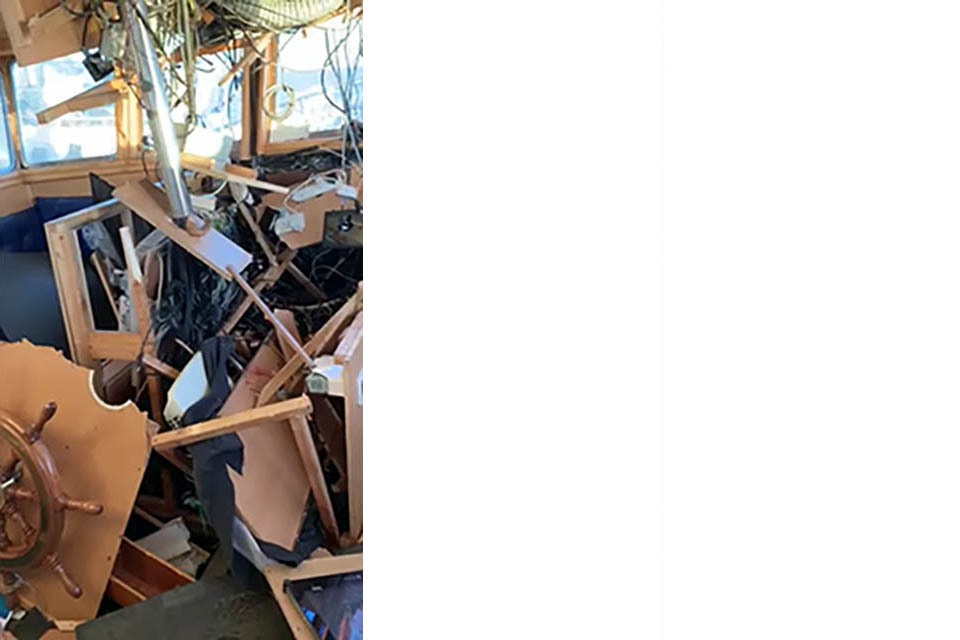
Figure 4: Wheelhouse destruction by shock damage
5. Preliminary assessment
While recovering crab pots using its hauler, Galwad-Y-Mor was extensively damaged and serious injuries were inflicted on the crew by an explosion. The explosion was in the water and external to the vessel. There was nothing that the crew could have done to prevent the accident. The source of the explosion has not been determined, but it was possible that old munitions on the seabed were disturbed as the vessel hauled its pots. Although extensively damaged and flooded, it is almost certain that Galwad-Y-Mor stayed afloat because the bulkheads either side of the engine room maintained their watertight integrity, containing the flood.
6. Ongoing action
The MAIB has notified other relevant agencies including: the Maritime and Coastguard Agency, the Receiver of Wreck and the Ministry of Defence. The MAIB investigation is ongoing and a report of the accident will be published in due course.
7. Information tables
| Ship particulars | |
|---|---|
| Vessel’s name | Galwad-Y-Mor |
| Flag | United Kingdom |
| Fishing numbers | BRD116 |
| Type | Potting fishing vessel |
| Registered owner | Galwad-Y-Mor Shellfish Limited |
| Construction | 2007 |
| Year of build | Steel |
| Length overall | 14.95m |
| Registered length | 12.90m |
| Authorised cargo | Shellfish |
| Voyage particulars | |
|---|---|
| Port of departure | Grimsby |
| Port of arrival | Grimsby |
| Type of voyage | Commercial |
| Cargo information | Shellfish |
| Manning | 7 |
| Marine casualty information | |
|---|---|
| Date and time | 15 December 2020, 1120 UTC |
| Type of marine casualty or incident | External explosion (Serious Marine Casualty) |
| Location of incident | 53°18.53’N 001°13.25’E |
| Place on board | Hull and all compartments |
| Injuries/fatalities | Significant, including life-changing injures – full details not being disclosed with this report |
| Damage/environmental impact | Extensive damage to hull, including shell plating breaches, engine room flooded and severe shock damage in all internal compartments |
| Ship operation | Fishing, recovering crab pots |
| Voyage segment | In operation |
| External and internal environment | Wind, south-westerly force 3-4; sea state, slight/moderate; visibility good. |
| Persons on board | 7 |
8. Regulations
Extract from The United Kingdom Merchant Shipping (Accident Reporting and Investigation) Regulations 2012 – Regulation 5:
The sole objective of a safety investigation into an accident under these Regulations shall be the prevention of future accidents through the ascertainment of its causes and circumstances. It shall not be the purpose of such an investigation to determine liability nor, except so far as is necessary to achieve its objective, to apportion blame.
Note: This report is not written with litigation in mind and, pursuant to Regulation 14(14) of the Merchant Shipping (Accident Reporting and Investigation) Regulations 2012, shall be inadmissible in any judicial proceedings whose purpose, or one of whose purposes is to attribute or apportion liability or blame.
9. Contact information
Marine Accident Investigation Branch
First Floor, Spring Place
105 Commercial Road
Southampton
SO15 1GH
Email iso@maib.gov.uk
Enquiries during office hours +44 (0)23 8039 5500

